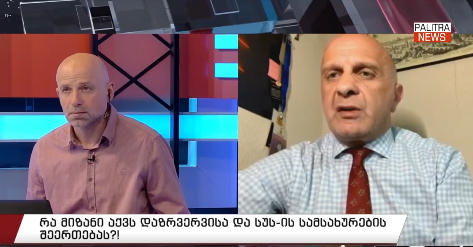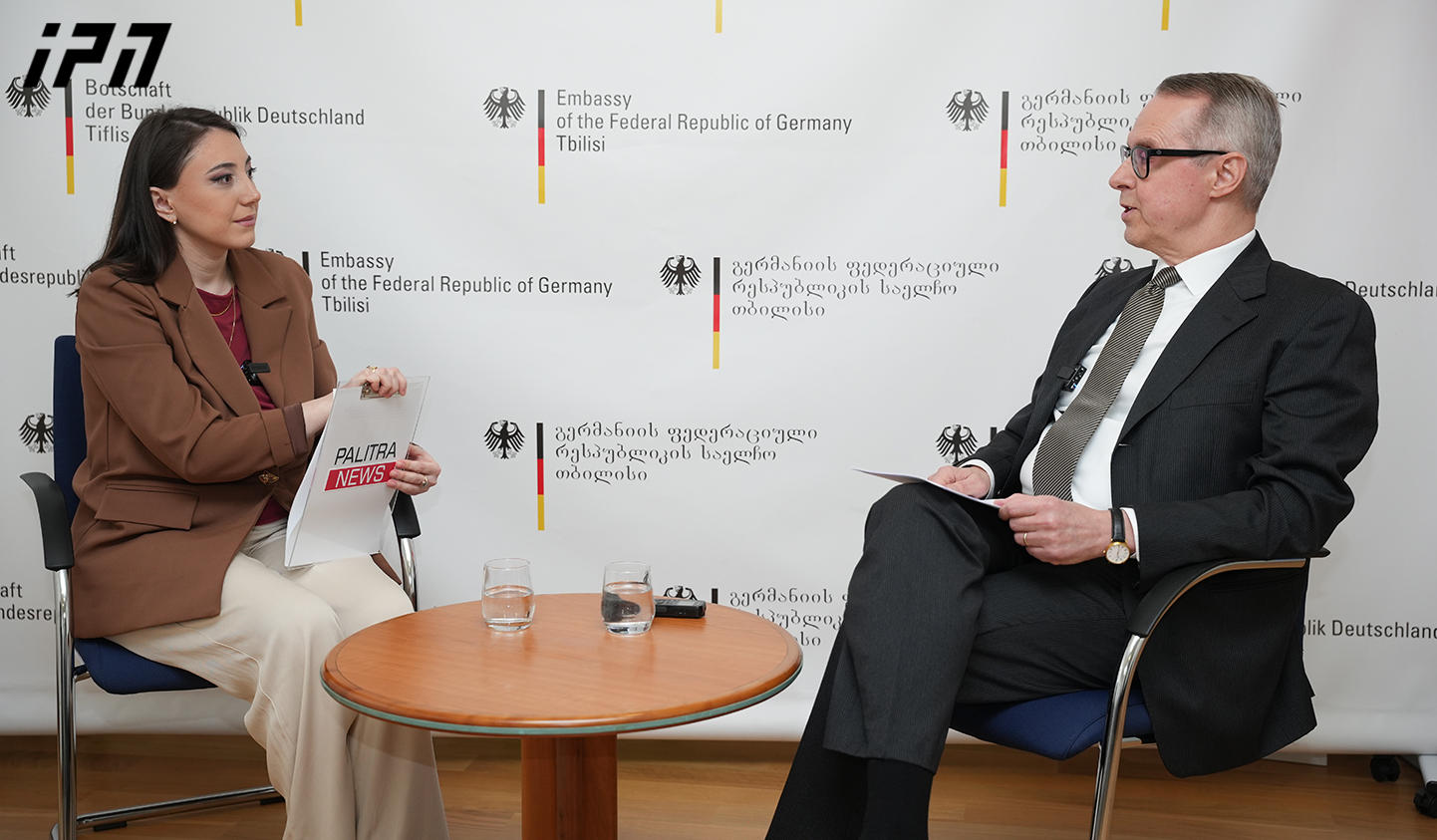Andro Gotsiridze: The Security Services are so politicized that the problem isn’t whether one agency merges with another, but that they serve party interests, which often contradict the state's interests

"Intelligence was one of the main directions of cooperation with the West and one of the relatively independent agencies. However, in recent years, we have seen individuals with overt political positions and party affiliations appointed to lead the intelligence service. The agency was never fully independent—and it won’t be under the umbrella of the State Security Service (SSSG) either," said security specialist Andro Gotsiridze on Palitra News’ program Political Space.
According to Gotsiridze, bringing the Intelligence Service under the SSSG will significantly degrade its quality.
“What we are witnessing is the concentration of power and the attempt to centralize everything under one hand—that’s what the integration of the Intelligence Service into the State Security Service entails. This model exists primarily in authoritarian countries like Russia and Belarus, where intelligence falls under the Ministry of Security. Georgia has attempted this model several times, unsuccessfully. Eventually, the intelligence agency was established as a separate body under the President.
This has its rationale. In classic intelligence models, diversification is considered beneficial—decision-makers should receive information from multiple sources. While in some countries intelligence agencies fall under ministries, success is not determined by where the agency is structurally located, but by its mandate, effectiveness, partnerships, and the intelligence cycle it operates under, which is supposed to support political leadership with informed decision-making.
Currently, in Georgia, this move simply serves to embed an intelligence institution into an already politicized agency. Intelligence used to be a primary link with the West and somewhat independent. Now we are seeing individuals with overt political affiliations rise through its ranks. It wasn't truly independent before, and it certainly won’t be under the SSSG. Naturally, this will worsen the quality of intelligence output, which is created by high-level professionals—fortunately still present in the service—but they are gradually being pushed aside in favor of political loyalty.”
Gotsiridze emphasized that both the SSSG and the Intelligence Service are politicized and operate based on party interests, which often contradict national interests:
“The issue isn’t whether one agency merges into another. The problem is that these agencies operate to advance party interests, which frequently diverge from the interests of the state. In this case, the party’s agenda includes confrontation with the West and electoral mobilization, which is not aligned with national interests. As a result, the Intelligence Service, once it becomes part of the SSSG, will become even more politicized and more subject to political expediency.
This is happening because the Soviet model of special services was never dismantled. The head of state still acts as the top policeman, the top spy, and the top counterintelligence officer. Ministers are party leaders, members of the political council. Naturally, since they have the authority to intervene in operations and use covert tools and influence, they use them for the party’s benefit, not for national security. Party priorities take precedence over state needs.
Additionally, mechanisms for independent oversight, audit, and general inspection have been dismantled. The General Inspection, instead of being an independent oversight body, is subordinate to the minister—i.e., a political figure—and functions more like a political filter than an independent monitor,” Gotsiridze concluded.
